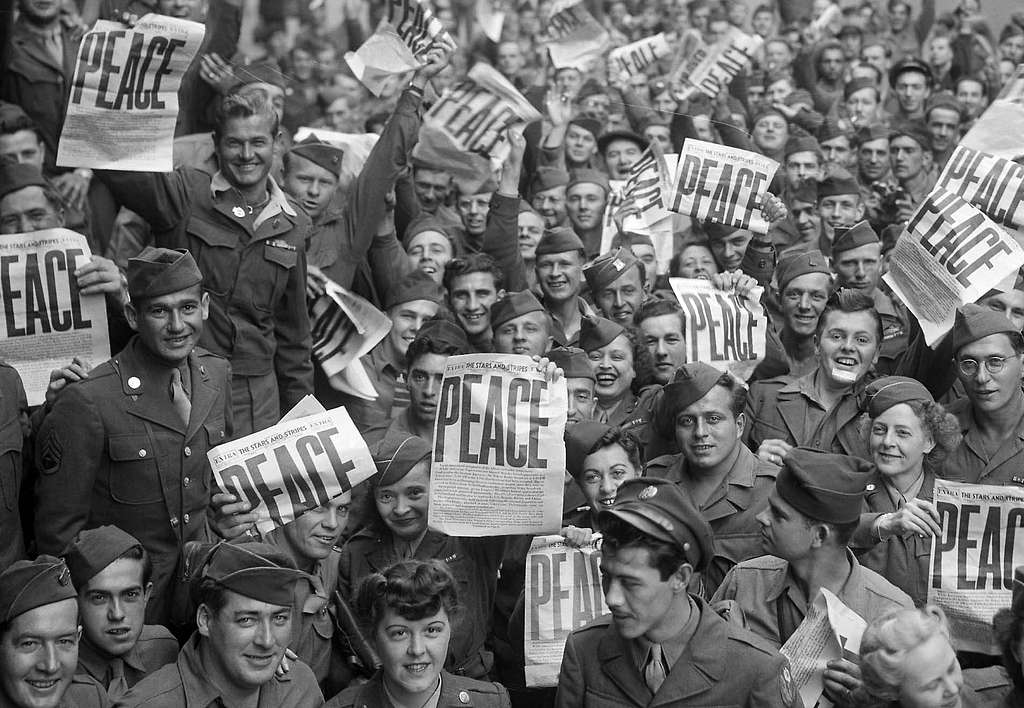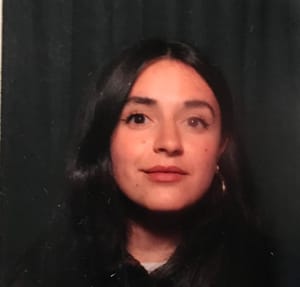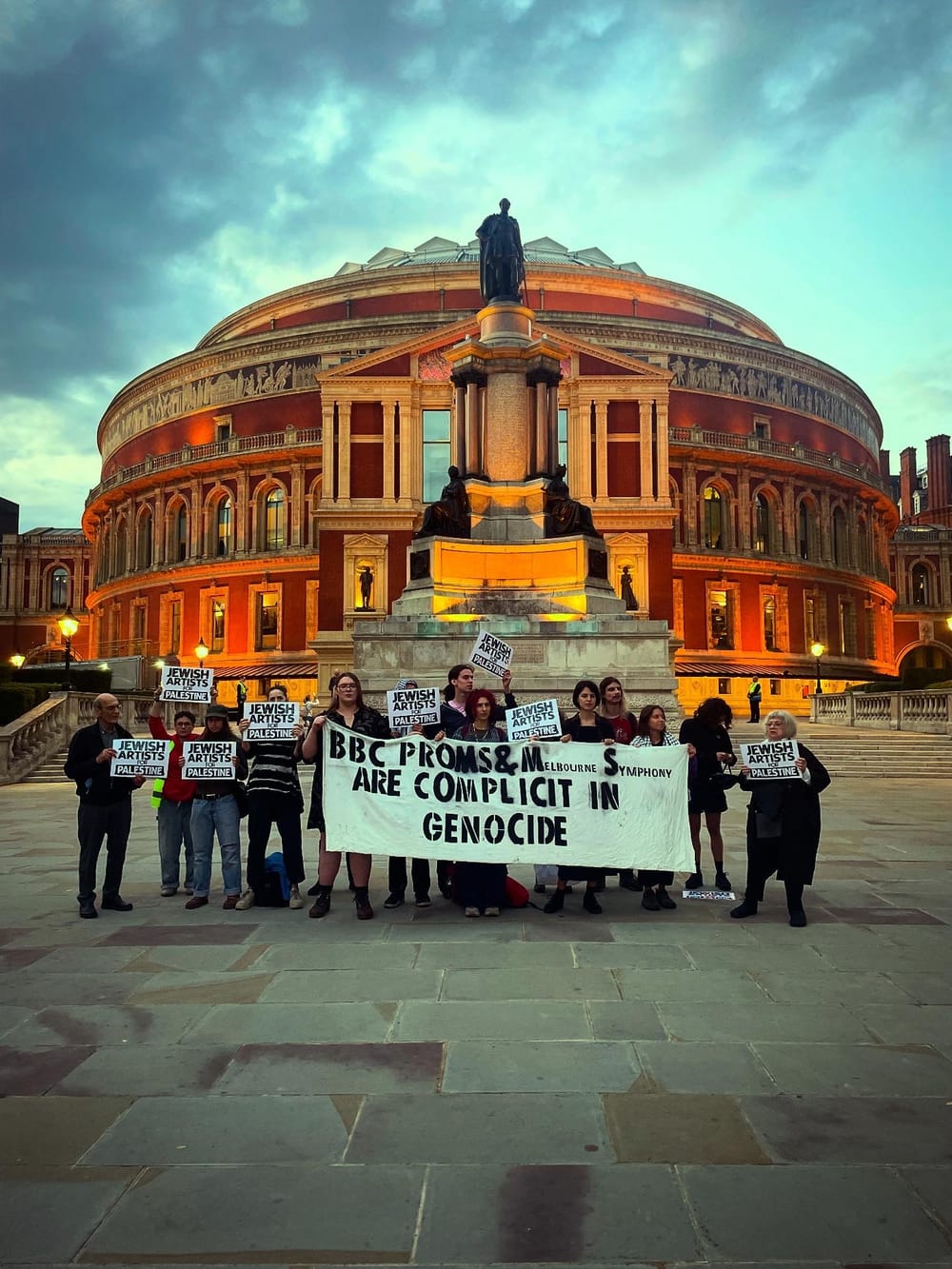
Yesterday was Victory in Europe (VE) Day. 8 May 2025 marks 80 years since Germany’s surrender at the end of World War II, and 80 years since the scale of industrial murder it had carried out in the name of racial purity became known to the rest of the world.
Celebrations and ceremonies took place across Britain and Europe, and in Israel too. Politicians tweeted speeches set to slick videos and stirring music. My mum sent me photos of my grandmother, who we call Mémé, at a party at her care home, her wheelchair parked in front of a cream 1940s car with all its doors open, her face scrunched under a Union Jack hat.
When I think of World War II, I think of Mémé. She was born in Armentières in northern France. Her mother was killed when a bomb destroyed the family home in 1940, and as the Germans advanced, she, then five years old, fled south with her aunt, her grandmother, and two cousins. They were part of nine million who left their homes at that time, a quarter of the French population. Her father, a teacher and a communist, stayed in Paris to work with the Resistance.
Mémé and the others slept in outbuildings and barns, rooms offered by strangers when they could. During the day they walked. Sometimes German planes would fly low to bomb the road, and they would dive into the ditches, cover themselves with the bodies already lying there. They were not a religious family, but when they passed one village church, Mémé’s grandmother had her baptised. She expected them to die. Mémé and my grandfather went back to the church ten or fifteen years ago and found the records. Her grandmother is listed as her godmother. Her godfather is the priest.
I lived with Mémé for a while in late 2023. We, her children and grandchildren, have often admired the fact that someone who had such a brutal childhood grew into such a warm and gentle matriarch. But I saw how the war stayed with her in those months together. We’d sit down with plates of fried eggs and petit pois to watch the six o’clock news, and when images appeared of refugees lugging their possessions south in Gaza or bomb-shocked buildings in Ukraine, she’d put her face in her arthritic hands and pray, out loud, for God to do something. The prayers sounded more like admonitions than pleas; her tone was the same as the one she used to use arguing with her husband. She could not understand, she told me, why this was happening again.
We like to believe there are lessons held inside horror. I’ve been thinking about this since reading “the hairshirt doldrums”, Kate Wagner’s brilliant essay on her experience of concussion. Wagner's injury caused her all kinds of suffering, physical and emotional, but it also forced her to confront her workaholism and to return, albeit temporarily, to a simpler and slower state of being. I don’t know if this is anything more than her elegant way of rounding off a piece of writing that is otherwise almost exclusively bleak, but it’s elegant because it echoes an long-held idea: that by experiencing pain, we are educated; that from it, you grow strong.
The extreme pain – if pain is an adequate word – of the Holocaust and World War II is no exception for either the right or the left. The left sees proof of the need for a vigilant and organised antifascism in the model of the resistance movements that existed before. The right sees evidence that Jews must have the same national strength and military capabilities as our would-be-exterminators; that we must defend ourselves by being able to threaten extermination in turn.
I don’t doubt that the latter position would’ve been my own in the shock and rubble of 1945. A lifetime on, though, the conditions are not the same, which is probably why calls for a broadening of Zionism on this year’s VE Day came mixed with more liberal flavours about fighting totalitarianism and racism – as though the Israeli government isn’t working to make that combination impossible.
Earlier this week, that government recommitted to “conquering” the Gaza Strip and removing the majority of its population to a designated “sterile zone”. A senior security official told The Guardian that a “voluntary transfer programme for Gaza residents… will be part of the operation’s goals”. Israel’s finance minister, a self-described fascist, told a “Settlements Conference” of his hopes that within “a few months”, Gaza will be “totally destroyed,” and that shortly after Israel will “apply sovereignty” in the occupied West Bank.
Two months have passed since any aid was allowed into Gaza, meanwhile, and food charities are running out of supplies, leading to widespread malnutrition. Siwar Ashour, the five-month old Palestinian girl pictured in this BBC News report, is so emaciated she “struggles to cry.”
To argue that remembering the 20th century demands more advocacy for Israel as it carries out this violence is, I think, to betray a belief that the Holocaust was evil because it was done to Jews, not because it was done at all. It offers supremacism as the answer to supremacism: not a lesson but an evolution.
And yet I’m sceptical of the workability of the left’s chosen lesson, too. Some of the countries worst affected by World War II are those with swelling support for hard right parties. Reiterating – rightly – fascism’s culpability in the horrors of those years has not inoculated us against it. That reiteration is itself manipulated into evidence of an oppressive shaming project that only the right’s iconoclasts can replace with honest pride.
Increasingly, I feel doubtful of the idea that we learn anything from these kinds of historic traumas at all – which isn’t to say that there aren’t things to learn, but that we fail to live and act accordingly as time moves on. Mémé, I think, is warm and gentle in spite of her premature immersion in conditions of extreme violence, not because of it; that Holocaust survivors were able to go on to build whole lives with loving families and close-knit communities strikes me as a miracle. When we mark the end of the war that followed the “war to end all wars”, we should know how slippery the guidance of history is. We have to decide afresh that we want a decent future, decide it over and over again. ▼
Francesca Newton is an editor at Vashti.
Author

Francesca Newton is assistant editor at Tribune and an editor at Vashti. She currently lives in Melbourne.
Sign up for The Pickle and New, From Vashti.
Stay up to date with Vashti.



